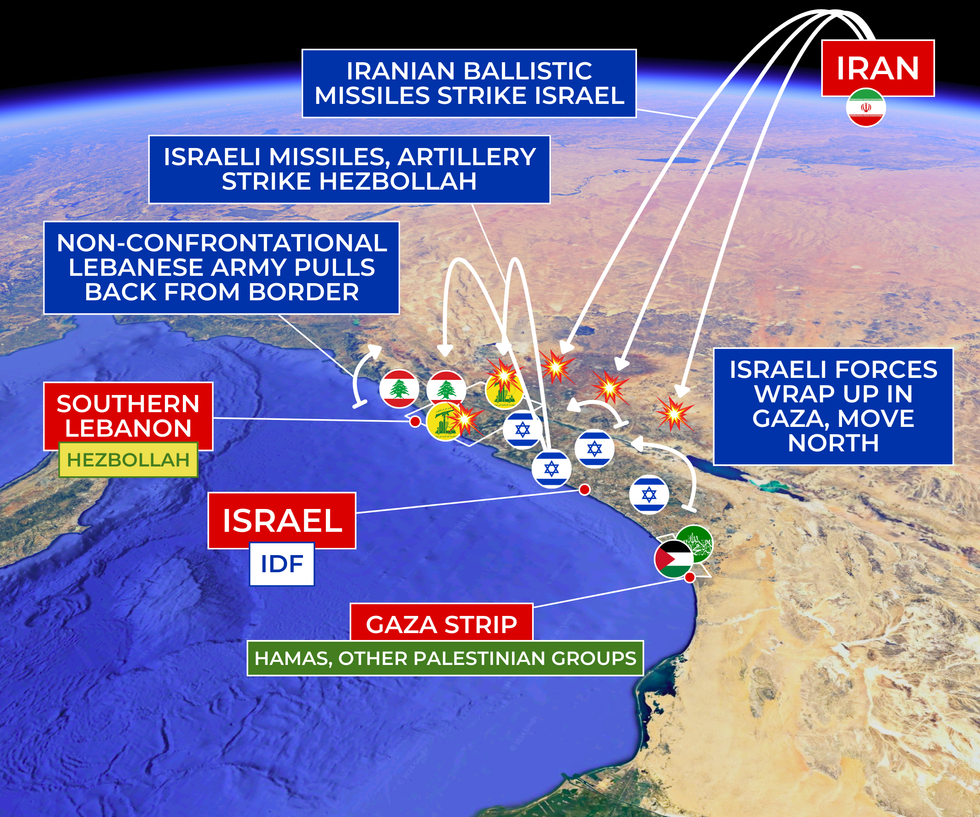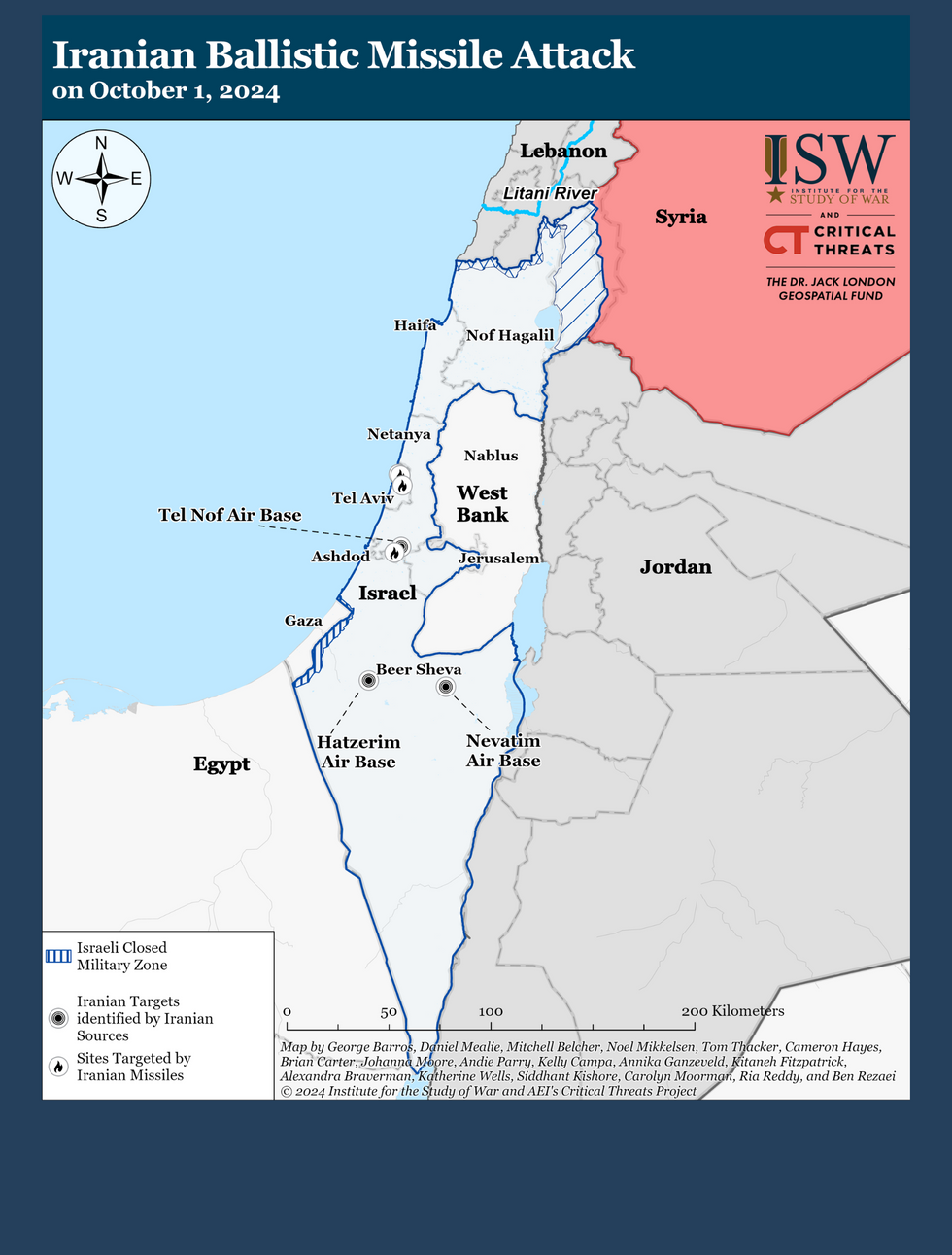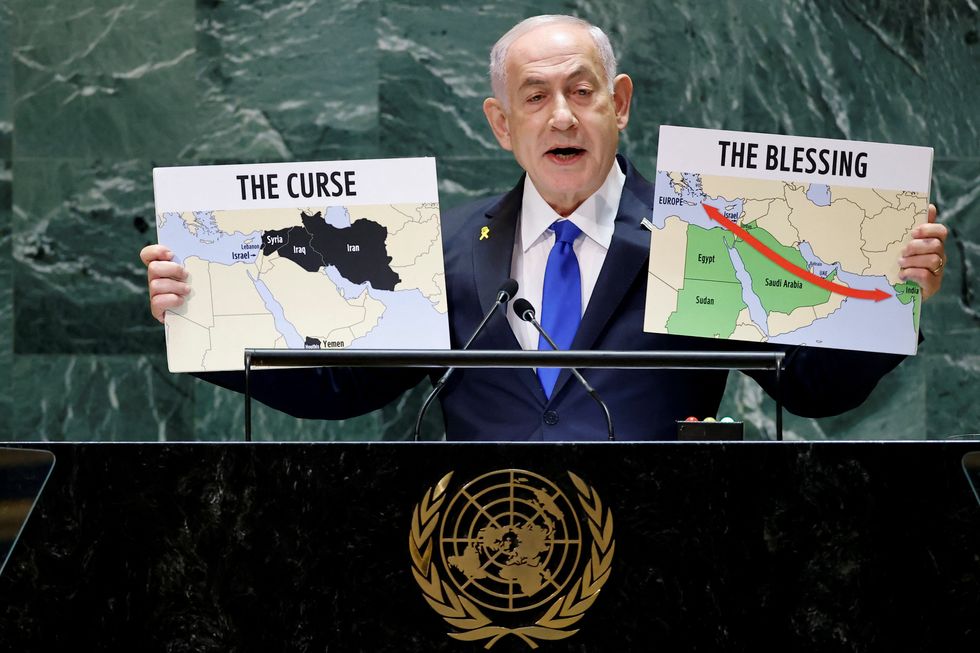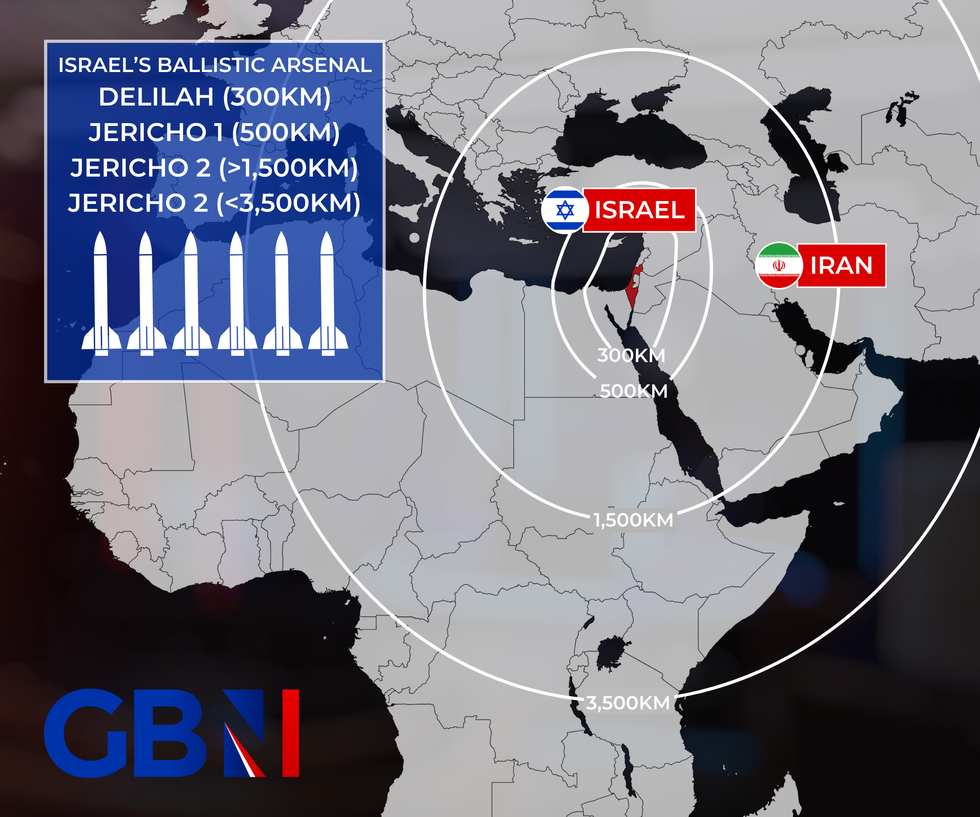Israel’s Prime Minister Benjamin Netanyahu has warned that Iran will “pay” for Tuesday night’s missile attacks on his country.
Addressing his cabinet late on October 1 after cities and military locations across Israel were rocked by a volley of Iranian ballistic missiles, Netanyahu said Iran “does not understand” Israel’s “determination to retaliate” against its enemies.
“They will understand. We will stand by the rule we established: whoever attacks us – we will attack,” he said.
His comments, and the Iranian attack, look to have taken Israel’s recent ramping-up in conflict to a higher level – having already spent the last few weeks pummelling terror group Hezbollah to the point that its leadership structure has been practically wiped out.
Israeli forces had turned their attention away from the besieged Gaza Strip, by the Egyptian border, to the northern reaches of Israel and into Lebanon, where pager bombs, air strikes on Beirut, and a ground invasion have sparked ceasefire calls – even from Israel’s allies in the West.

The state of play in Israel on October 1
Iran, who backs Hezbollah, had vowed revenge – which came to a head last night in the attacks.
Researchers at the Institute for the Study of War (ISW) were able to detail where Israel had been attacked – though Israeli sources have remained more coy for security purposes.
Alongside the strikes on cities like Tel Aviv, Iran’s ballistic barrage had impacted Israeli military and intelligence sites, including the Nevatim air base, which houses Israel’s F35 jets, two more air bases, and the IDF Glilot Intelligence Base, home to the IDF’s signals collection unit and the Mossad Headquarters.
The Iranian attack killed one Palestinian near Jericho in the West Bank, and shrapnel lightly injured two Israelis in Tel Aviv, the ISW said.
But Netanyahu’s ominous words to Iran have prompted speculation over what a retaliatory attack could look like.
MORE FROM ISRAEL:
- Donald Trump warns US on ‘brink of World War 3’ after devastating Iran missile strike
- Iran attacks Israel: ‘No quick end’ to conflict after firing of 200 missiles and threat of ‘serious blow’ to Netanyahu
- Keir Starmer condemns Iran’s missile attack and commits to protecting Israel in meeting with Netanyahu

The Institute for the Study of War’s daily “Iran Update” detailed where Israel had been attacked – though Israeli sources have been more coy for security purposes
INSTITUTE FOR THE STUDY OF WAR
In response to the April 13 attacks on Israel – where scores of drones and missiles were neutralised by Israel, the UK and the US, Israeli forces carried out air strikes targeting Esfahan in Iran on April 18. At the time, these were labelled “calibrated” tit-for-tat attacks from both sides to avoid escalating things further.
And this time, Israel has warned Iran that any attack from Tehran would be met with a response on its nuclear or oil facilities, according to a Wall Street Journal report.
Arab officials said Israel sent clear messages to Iran that it would respond to any strike on Israeli territory, small or large, regardless of the number of casualties, the report said.
But as of October 3, this has not yet come to pass – and, for obvious reasons, the IDF or Israeli intelligence will not be publicising where they plan to hit ahead of time.
US think tank the Center for Strategic and International Studies (CSIS) says that any direct battle between the two countries would essentially be an air war – with advanced Israeli jets and missiles up against Iran and its proxies’ vast caches of Shahed drones and projectiles.

Israel is estimated to have the capacity to fire 24 nuclear warheads
REUTERS

Israel’s ballistic missiles could hit any target within a 3,500km radius
GB NEWS
But thanks to billions of dollars of American aid – which the US says is in place to uphold Israel’s “qualitative military edge” – the small, Mediterranean nation maintains a stockpile of long-range weapons, as demonstrated above.
On top of those weapons, the International Institute for Strategic Studies (IISS) estimates, Israel maintains the capacity to fire 24 nuclear warheads.
But the IISS also warns that “both sides arguably lack the ability to overwhelm militarily the other” – in line with what the CSIS have said.
Iran’s Islamic Revolutionary Guard Corps warned yesterday that it would conduct “crushing attacks” on Israel if it retaliates against Iran for its ballistic missile attack.
But, back in May, the IISS said that an Israeli attack on Hezbollah was likely, and all-out war – unless another state got involved – was not. Its words, for now, look to be holding true.